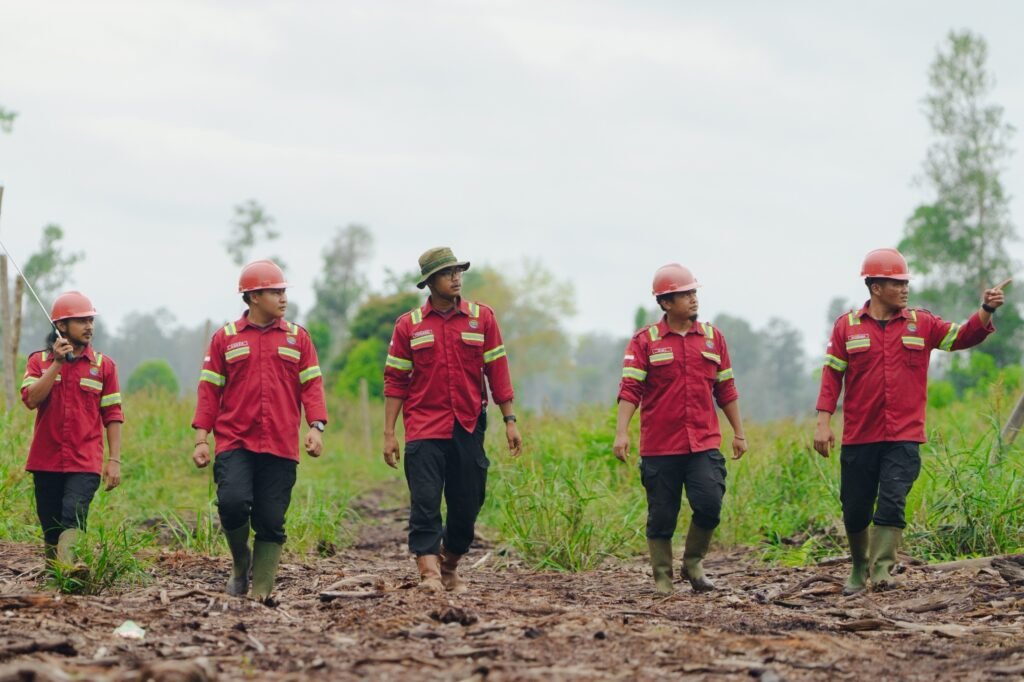Project Overview

PT Hutani Berkah Mulia (HBM) is implementing a peatland conservation and restoration initiative in Bayung Lencir Subdistrict, Musi Banyuasin Regency, South Sumatra, Indonesia. The project focuses on protecting and rehabilitating degraded peat ecosystems through hydrological recovery, fire prevention, and long-term ecosystem management.
Situated in an ecologically critical region, the project aims to reduce greenhouse gas emissions by preventing further peat degradation and enhancing the natural ecological functions of wetlands. HBM employs evidence-based land management practices, including canal blocking, access restriction, and community engagement, to support climate mitigation, biodiversity protection, and social co-benefits.
This initiative reflects HBM’s long-term commitment to preserving Indonesia’s natural capital through a science-driven, inclusive, and transparent approach that aligns with international environmental standards and applicable legal frameworks.
